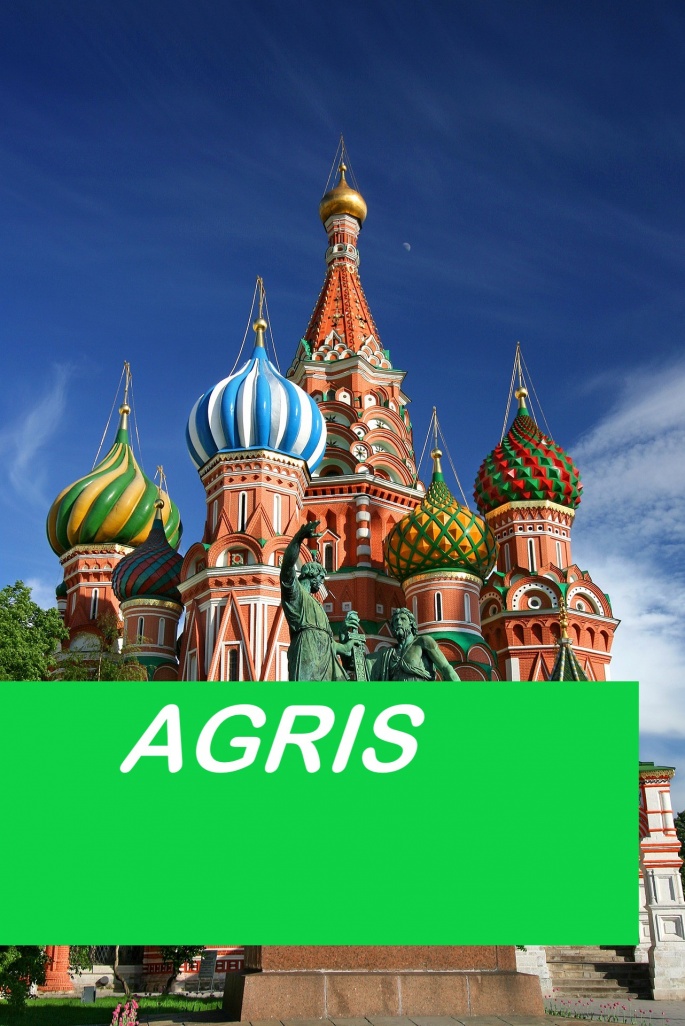Strengthening the Accessibility and Visibility of Agricultural and Land Data through the Use of Semantics - AGRIS in Europe and Central Asia

Moscow, 27-28 June 2019
The aim of the workshop was to discuss thematic topics and cross cutting topics on management, use and further developments related to AGRIS. Also, to look at the use of AGRIS, in particular in the context of research data in agriculture and land, with the objectives of enhancing knowledge sharing, the visibility of and access to agricultural sciences and the technical content of agricultural research worldwide. The goal was to strengthen the AGRIS community in Europe and Central Asia and set priorities for the next few years.
The meeting was organized jointly by the Food and Agriculture Organization of the UN (FAO), in collaboration with the Land Portal Foundation (the Netherlands) in Moscow, 27-28 June 2019, and was hosted by the Central Scientific Agricultural Library (CSAL).
AGRIS: International System for Agricultural Science and Technology AGRIS, or International System for Agricultural Science and Technology, came into being in 1974 on the joint initiative of around 180 FAO member states. AGRIS is serving the information needs of developed and developing countries on a partnership basis. The main features of AGRIS can be summed up in three elements:
|
Highlights:
To improve agriculture in the world, we have to make information on agriculture globally available. The Moscow workshop was aimed at clarifying how to enhance the accessibility and visibility of scientific publications in Europe and Central Asia using AGRIS.
The practical use of AGRIS was detailed, in particular, in the context of research data in agriculture, with the objectives of enhancing knowledge sharing, the visibility of and access to agricultural sciences and the technical content of agricultural research worldwide.
In addition to participants, representatives were present from the Department for Agricultural Institutions, Russian Federation Ministry of Science and Higher Education - Mr Vugar Bagirov; from the Central Scientific Agricultural Library (CSAL) - Mr Mikhail Bunin, and from the FAO Liaison Office with the Russian Federation - Mr Aghasi Harutyunyan.
FAO speakers identified challenges and possible solutions for the ultimate purpose of strengthening the AGRIS community in Europe and Central Asia and setting priorities for the next few years.
The workshop underlined CSAL’s major role nationally and regionally, given the fact that CSAL enjoys the status of an FAO depository library with more than three thousand titles of FAO publications, with the earliest document dating back to 1947. The hosting of the meeting by the Central Scientific Agricultural Library was much appreciated.
The regional seminar brought together AGRIS experts from Belarus, Moldova and Serbia, as well as university academics and editors of scientific media outlets from many Russian cities, and representatives of Landnet and LandPortal Foundation. The event was live streamed on CSAL’s website. Needs of data providers in the region were discussed at length. The new AGRIS prototype was also demonstrated. An interesting feature is the option to show AGRIS with only data from one selected data provider (for example, CSAL), which will better highlight contributions by provider.
Discussions were intense: metadata and quality control, supplying data, subject coverage, and outreach. Key action priorities, as well as resources to making sure all AGRIS-related goals to be achieved were also discussed. and very useful on metadata and quality control, supplying data, subject coverage, and outreach. Knowledge was shared between peer AGRIS centres, and valuable connections were made. It was an excellent opportunity for AGRIS stakeholders in the region to commit to supporting further achievements in expanding AGRIS coverage and quality, and in advancing AGRIS use for agriculture and related knowledge management practices. Key action priorities, as well as resources to making sure all AGRIS-related goals to be achieved were also discussed.
We thank all the delegates who attended this important event, as well as those who submitted their ideas and thoughts electronically via [email protected]
Related links:
FAOLOR press release on AGRIS
http://www.fao.org/russian-federation/news/detail-events/en/c/1200039/
http://www.fao.org/russian-federation/news/detail-events/ru/c/1200041/


